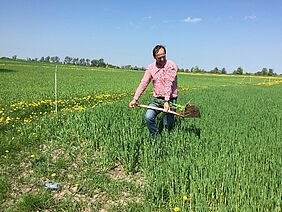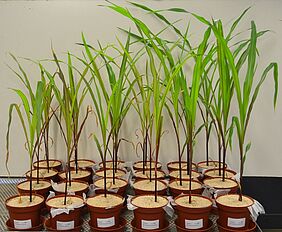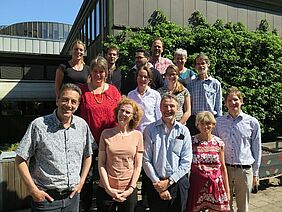How can the management of phosphorus (P) in organic farming be improved? Phosphorus (P) is essential for every living organism as part of its DNA and other molecules. Thus, it is also a vital ingredient of fertilizers. Nowadays, mined rock phosphate is often used besides farm manure. However, the finite rock phosphate would preferably be replaced by P fertilizers made from recycled waste material. FiBL, as a project partner of IMPROVE-P in the framework of the EU research programme CORE Organic II, is carrying out research to find possible solutions.
Within the framework of IMPROVE-P and under the coordination of Kurt Möller, University of Hohenheim (DE), the project members evaluated alternative recycled fertilizers in terms of their effectiveness, their risks, their energy needs and the acceptance in the organic sector. Additionally, they examined microbial and plant-based strategies to mobilise P from various P fertilizers. Sarah Symanczik and Paul Mäder of FiBL carried out field and pot trials. Additionally, an expert workshop on P recycling was organized at FiBL. Following the workshop, the experts and stakeholders were asked to fill in a questionnaire in order to assess how acceptable new P fertilizers made from waste products are in various countries. The results were published in the June edition of "Bioaktuell", the Swiss magazine of the organic movement.
Three fact sheets on the various types of recycled fertilizer Else Bünemann-König, FiBL Switzerland
Links
- uni-hohenheim.de: IMPROVE-P Website
- orgprints.org: Bioaktuell article on recycled P fertilizer (in German)
FiBL Shop
- shop.fibl.org: Compost and Digestates from Urban Organic Wastes
- shop.fibl.org: Meat and Bone Meal
- shop.fibl.org: Sewage Precipitation Products







